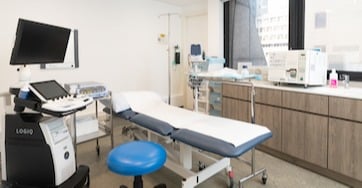It can be alarming to feel a sharp discomfort in the upper abdomen. The stomach, liver, and other important organs are located in this area, which is also referred to as the epigastrium. You can better manage your health by being aware of the origins of the epigastric pain, accompanying symptoms, and remedies thereof.
What is Epigastric Pain?
Any discomfort or pain felt in the upper center of the abdomen, more precisely in the epigastrium, is referred to as epigastric pain. The lower ribs on either side encircle this region, which extends from the lower portion of the breastbone (or sternum) all the way down to the navel. The characteristics of severe pain might drastically change from person to person and from one episode to another. In certain cases, the discomfort may seem stabbing and acute, almost like a needle being inserted from the inside. Others may experience pain as a dull aching or a gnawing sensation that is comparable to severe hunger pangs. It is possible for the pain to be either intermittent - coming and going seemingly randomly, or persistent - maintaining a more or less constant character over time.
Additionally, the nature of the pain may alter in reaction to specific behaviors or circumstances. For instance, it could get worse during stressful times, or it could get better with food intake. It may even be difficult to identify the precise source of the discomfort because it may radiate or migrate to other parts of the abdomen, the thorax or the back.
Epigastric discomfort is a symptom that could point to a number of underlying conditions or diseases rather than being a sickness or condition in and of itself. The stomach, liver, pancreas, and a part of the small intestines are all located in the epigastric region, therefore pain in this area could indicate an issue with any of these organs. It's also important to keep in mind that, in a small percentage of cases, epigastric pain may be a symptom of a cardiac disease. For this reason, any severe or chronic epigastric pain should be examined by a doctor.
Epigastric pain can result from a variety of conditions related to the digestive system. Some of the most common causes include:
Indigestion
This usually occurs after eating and can cause symptoms such as burping, bloating, and a feeling of fullness, which can accompany epigastric pain.
Acid reflux and GERD
Acid reflux occurs when stomach acid used in digestion gets backed up in the food pipe, leading to heartburn and potentially causing gastroesophageal reflux disease (GERD) if left untreated.
Overeating
Consuming more than necessary can cause the stomach to expand beyond its normal capacity, leading to pressure on surrounding organs and causing epigastric pain.
Lactose intolerance
People who can't break down lactose, a sugar found in milk and dairy products, may experience epigastric pain after consuming these foods.
Drinking alcohol
Excessive alcohol consumption can cause inflammation in the oesphageal and stomach lining, leading to epigastric pain.
Esophagitis or gastritis
Inflammation of the lining of the food pipe or stomach can cause epigastric pain.
Hiatal hernia
This condition occurs when part of the stomach pushes up through the diaphragm, potentially causing epigastric pain.
Peptic ulcer disease
Damage to the lining of the stomach or small intestine, often caused by a bacterial infection or excessive use of certain medications, can lead to epigastric pain.
Gallbladder disorder
Issues with the gallbladder, such as gallstones or inflammation, can also cause epigastric pain.
Pregnancy
It's common to feel mild epigastric pain during pregnancy due to acid reflux or pressure on the abdomen from the expanding womb.
Smoking
cigarette smoke produces thousands of chemicals known to induce/cause tumors (carcinogen); reactive oxygen species (ROS) are chemicals that are also produced by smoke that can cause direct damage to the wall lining the esophagus, stomach and duodenum.
Less frequently, stomach discomfort may indicate heart disease or a heart attack, particularly if it worsens with effort and is accompanied by breathlessness, perspiration, tightening in the chest, lightheadedness or dizziness.
Other accompanying symptoms of Epigastric Pain
Depending on the underlying cause, the symptoms that come along with epigastric discomfort can change greatly. They might include a decrease in appetite, belching, heartburn, nausea, vomiting, or weight loss. In extreme circumstances, the pain could radiate to the back, start suddenly, or be so bad that it keeps you up at night.
Diagnosing Possible Cause of Epigastric Pain
It's imperative to contact a doctor if you have severe or persistent epigastric pain. To determine the source of your pain, they may use a range of diagnostic techniques, including medical history, physical examination, laboratory testing, imaging investigations, and endoscopy.
Treatment and Management of Epigastric Pain
The reason for the epigastric pain determines the course of treatment. For instance, proton pump inhibitors or H2 blockers, which lower stomach acid levels, may be needed as treatment for GERD. Losing weight, avoiding lying down right after eating, and avoiding trigger foods are all lifestyle changes that can help control GERD symptoms.
In addition to acid-suppressing medications, antibiotics may be necessary for peptic ulcers in order to get rid of the H. pylori bacterium. Surgery to remove the gallbladder may be necessary if gallstones or severe acute or chronic gallbladder inflammation are causing symptoms. Many patients with epigastric pain caused by hyperacidity can find brief relief from their symptoms by using over-the-counter antacids to help neutralise stomach acid. However, long-term usage of these drugs should be supervised by a physician.
In some circumstances, managing the underlying problem, such as cardiac disorders or chronic conditions like diabetes, may be necessary to relieve epigastric pain.
Conclusion
Epigastric discomfort can occasionally be a symptom of serious diseases, such as a heart attack, even though it is frequently linked to relatively minor digestive system disorders. If your pain is severe, ongoing, or accompanied by other worrisome symptoms like shortness of breath or sweating, you should always seek emergency medical assistance. Most causes of epigastric pain can be effectively controlled with the right diagnosis and care, improving quality of life. Therefore, it is important to never overlook or minimise persistent or severe epigastric pain. If the pain is accompanied by other unsettling symptoms including shortness of breath, sweating, nausea, or changes in consciousness, immediate medical assistance should be sought. These might be a sign of a more serious problem like a heart attack that could be fatal.
Remember, the first step to successful management and treatment of epigastric pain is understanding its nature and identifying its potential causes. As with any health-related issues, keeping lines of communication open with your healthcare practitioner is essential for allowing them to direct you to the best course of action for your circumstance. In the end, sustaining good health is a lifelong endeavor, and treating symptoms like epigastric discomfort is essential to doing so.
It is imperative that you see a healthcare professional if you experience any symptoms that should raise concern. These signs and symptoms may point to a significant health problem that needs immediate medical attention.

 Central General Practice
Central General Practice
 Repulse Bay
Repulse Bay
 Clearwater Bay
Clearwater Bay
 BodyWorX Clinic
BodyWorX Clinic
 Central Specialist Clinic
Central Specialist Clinic
 MindWorX Clinic
MindWorX Clinic
 Partner Clinics
Partner Clinics
 Family Clinic
Family Clinic
 OT&P Annerley Midwives Clinic
OT&P Annerley Midwives Clinic

